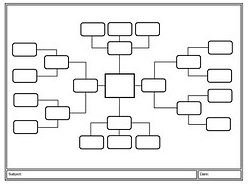Teaching Strategies for Reading Comprehension to Solve Reading Problems
The Problem
When you ask a struggling reader with reading comprehension problems a question about a reading passage, he may not be able to answer you. In fact, he may have no idea what he just read. You can’t help these students by teaching them how to decode words or how to use sight word recognition. How can you help a student who does not comprehend what he reads? You need to use strategies for reading comprehension.
Teach Summarizing
The key to working with a student with reading difficulties is starting small. If your students are reading a picture book, ask them to read one page and then summarize it. Teach struggling readers that to summarize means to tell the important parts of a story, page, or sentence in chronological order.
Once students can summarize one page (and at first they may need guidance from you through questioning and/or directing them to the illustrations), then move on to one section of the book, then one-half of the book and so on. It is fairly easy to tell if a student understands the text if he can retell the story in his own words. You may need to model good summaries for days before you will receive one from a student. Be patient, and take this reading comprehension skill in small chunks.
Visualization
Another strategy for reading comprehension is visualization. Many struggling readers, who have comprehension problems, do not create pictures in their own heads when they read. This may seem natural to you and their peers, but they are just seeing words in their head. They are concentrating so much on reading the words that they are not creating the pictures to go with them.
First, slow down your reader, tell them to take a breath at commas and periods, and think about what they are reading. When you are first practicing visualization, you may ask students to illustrate what they think is going on in the story and what they see. Model this strategy for your students. Describe what you see in your head when reading a passage out loud, and draw it on chart paper, so students can see if the pictures in their heads match yours. Visualization is a skill you can really have fun with!
Connect Prior Knowledge
Struggling readers often need to connect new information to content they already know or have learned. This is common for most students, but especially for students reading below grade level. Use strategies for reading comprehension to help them.
One way to connect prior knowledge to a new reading text is to make a mind map or word web. In the middle of the word web, write a concept from the new text, and ask students to think of other words or memories that they are reminded of. Draw a line, and write what students suggest. This will help students to connect to the text when reading. Personal connections help with comprehension.
Other Strategies
Hopefully some of these ideas will help. Just remember to be patient and your students will get the hang of it. If you know of any other strategies or you’ve used any of these ideas and found them to be successful then please post a comment and let us know what worked for you.
